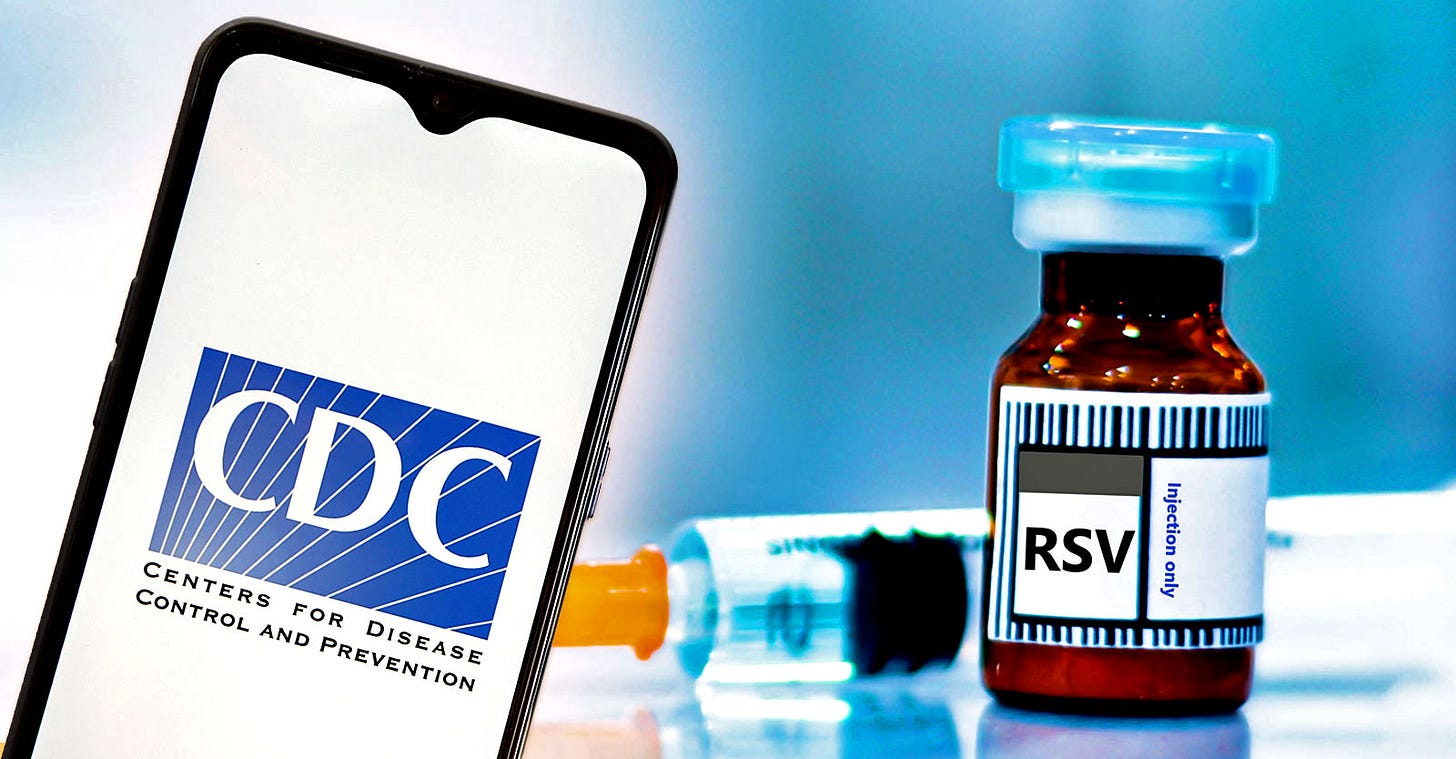New CDC Vaccine Panel Recommends Merck’s RSV Shot for All Newborns
In a 5-2 vote, the new members of the ACIP recommended Merck’s new RSV shot to protect infants from respiratory syncytial virus.
by Brenda Baletti, Ph.D.Suzanne Burdick, Ph.D.
Advisers to the Centers for Disease Control and Prevention (CDC) this morning voted to recommend all newborns receive Merck’s new monoclonal antibody shot, designed to protect against respiratory syncytial virus (RSV).
Two of the seven committee members, Retsef Levi, Ph.D., and Vicky Pebsworth, Ph.D., opposed the recommendation, citing safety concerns. The remaining five members supported it.
The vote marked the first — and closely watched — decision by the new members of the Advisory Committee on Immunization Practices (ACIP), appointed early this month by U.S. Secretary of Health and Human Services Robert F. Kennedy Jr. He replaced all 17 sitting members, citing long-standing conflicts of interest that he said had plagued the committee for years.
Kennedy’s decision outraged the mainstream public health industry, which feared the new committee would be more critical of vaccines. It even prompted a move by vaccine manufacturers, insurers and the professional medical organizations they support to bypass government health agencies’ recommendations by creating a nongovernmental system for recommending and purchasing vaccines.
The U.S. Food and Drug Administration earlier this month approved Merck’s RSV shot, clesrovimab, which will be marketed as Enflonsia. It joins two other recently approved RSV drugs. One is Sanofi and AstraZeneca’s monoclonal antibody shot for infants, Beyfortus (nirsevimab). The other is Pfizer’s RSV vaccine, Abrysvo, for pregnant mothers.
Data presented by the CDC during Wednesday’s ACIP meeting reassured committee members that the recently approved RSV interventions were safe and effective.
However, an analysis of the CDC’s Vaccine Safety Datalink for the 2023-2024 respiratory season revealed an association between Abrysvo and an increased risk for hypertensive disorders of pregnancy, which include gestational hypertension, preeclampsia, eclampsia and HELLP syndrome, a life-threatening pregnancy complication.
Presenters repeatedly emphasized that RSV — a common respiratory virus that usually causes mild cold-like symptoms but can be serious in infants — is the leading cause of hospitalization for infants in the U.S. There are fewer than 100 deaths per year from RSV in the U.S., according to data presented at the meeting.
Committee member wary of giving new shot to his own baby
Today’s vote on Merck’s new monoclonal antibody shot came after Levi raised several concerns about possible adverse event signals from the drug’s clinical trials. In one trial, he said, there were five deaths in the vaccinated baby group and none in the placebo group. In another, when compared with an existing treatment, the death ratio was 5-to-1. In a third trial, it was 7-to-3.
In one of the trials, immunized babies admitted to the hospital for RSV-related illness stayed longer than non-immunized babies with the same condition. Levi said this raises concerns that the immunization may have worsened their illness — a phenomenon called immunization-enhanced disease, which has complicated previous attempts to develop an RSV vaccine for infants.
He said the trials and the adverse events were small, but “should we perhaps be concerned?”
A Merck representative said investigators conducted an extensive analysis of the adverse events and determined none were related to the shot. She also noted that the FDA review was extensive and that the agency ultimately approved the shot.
Dr. Meryl Nass, who live-blogged the meeting for Children’s Health Defense (CHD) on CHD.TV, wrote, “I have to say this is what is always claimed by the manufacturer and the CDC, usually with no supportive information.”
A researcher from the FDA acknowledged Levi’s point, saying “numerical numbers go in the wrong direction,” but the percentage differences were very small, between 0.2% and 0.3%, she said.
Co-chair Martin Kulldorff, Ph.D., said it would be critically important to monitor adverse events going forward.
New committee member Dr. H. Cody Meissner, who was part of the RSV work group, strongly supported the approval. He said the group had extensively discussed Levi’s concerns and was comfortable with the clinical trial results.
CHD Senior Research Scientist Karl Jablonowski told The Defender that despite Meissner’s assurances, the CDC working group noted that they “have serious concerns in the certainty assessment, specifically imprecision because ‘too few infants were included in the trial to capture rare events.’”
Jablonowski said that the trials showed clear risks and the drug “clearly needs a larger clinical trial to assess the risk to the most vulnerable. However, because the drug was approved, it won’t be a clinical trial of a few thousand that shows the risk; it will be population-wide surveillance.”
New committee member and ACIP co-chair Dr. Robert Malone also voiced strong support for the shots. Despite the short time frame, he said the group had conducted a rigorous analysis.
Levi, a father of six, said if he had a high-risk child, he would use the product to protect them. “On the other hand, if I was the father — and luckily I was the father — of a healthy child that was born on time, knowing all of this, I would be concerned to use it.”
After the vote to recommend Merck’s shot, all seven members then voted to add it to the Vaccines for Children Program, making it available for free to all infants whose families cannot afford it. The program serves more than 50% of U.S. children.
Specific pricing data on Merck’s clesrovimab is not yet available, but Sanofi and AstraZeneca’s competitor shot, nirsevimab (Beyfortus), costs about $520 per shot.
During the second vote, Levi emphasized the importance of tracking adverse events in post-marketing data.
Watch here:
Related articles in The Defender
Exclusive: Two Infants Died Within Hours of Receiving RSV Shots, CDC Internal Emails Show
Despite 12 Deaths During Clinical Trials, CDC Signs Off on RSV Shots for Newborns
‘Reckless in the Extreme’: FDA Panel Recommends New RSV Shot for Use in Healthy Infants
Worth the Risk? RSV Shots for Babies Lack Long-term Safety Data






